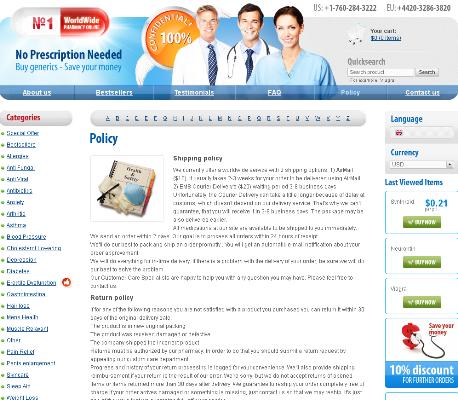Buy Glucophage Online
Comparing Glucophage with Other Diabetes Medications
Overview of Glucophage and Its Benefits
Glucophage, a widely recognized brand of metformin, has emerged as a cornerstone in diabetes treatment. Originally approved in 1995, this medication has since become a go-to for many healthcare providers. The primary action of Glucophage lies in its ability to improve the body's sensitivity to insulin and reduce hepatic glucose production. As a result, it has been shown to effectively lower HbA1c levels—a key marker of long-term blood glucose control—and reduce the risk of diabetes-related complications. One of the standout features of Glucophage is its relatively favorable side effect profile, with gastrointestinal issues being the most common but often transient.
| Benefit | Description |
|---|---|
| Improves Insulin Sensitivity | Helps the body utilize insulin more effectively. |
| Reduces Hepatic Glucose Production | Minimizes the liver's release of sugar into the bloodstream. |
| Lower HbA1c Levels | Improves long-term blood glucose control. |
Surprisingly, this medication also supports modest weight loss, wich can be a welcome perk for patients struggling with weight managment. Moreover, it's generally well-tolerated and affordable, making it accesible for a wide range of patients.
Sulfonylureas: How They Compare to Glucophage

When comparing sulfonylureas to Glucophage, it's essential to understand their mechanisms and benefits. Sulfonylureas work by stimulating the pancreas to release more insulin, which can be particularly effective for individuals who still have some insulin production. This can lead to a quicker reduction in blood glucose levels, making it popular for immediate glucose control.
On the other hand, Glucophage, or metformin, operates differently by improving insulin sensitivity and reducing glucose production in teh liver. This results in more stable long-term glucose management without drastically dropping blood sugars, which can be a risk with sulfonylureas. Glucophage is often preferred for its weight-neutral or even weight-loss effects, making it a go-to for many patients with type 2 diabetes.
However, each medication has its distinct advantages and potential downsides. Sulfonylureas might lead to weight gain and hypoglycemia, while Glucophage's common side effects include gastrointestinal issues. Ultimately, the choice between these medications should be tailored to individual patient needs and medical history.
Dpp-4 Inhibitors Versus Glucophage: Key Differences
When comparing Glucophage with DPP-4 inhibitors, there are critical distinctions to note. Glucophage, a widely-prescribed medication, primarily works by enhancing insulin sensitivity and reducing glucose production in the liver. On the other hand, DPP-4 inhibitors function by increasing levels of incretin hormones, which help regulate blood sugar by increasing insulin release and decreasing glucagon levels.
One notable advantage of Glucophage is its cost-effectiveness and extensive usage history, making it a trusted option in diabetes managment. However, DPP-4 inhibitors offer the benefit of fewer side effects, such as lower risks of hypoglycemia. This makes them an appealing alternative for patients seeking a different approach to glucose control.
Insulin Therapy Compared to Glucophage in Diabetes Management

Comparing insulin therapy to Glucophage, we see fundamental differences in how each manages diabetes. Insulin requires direct administration via injections or pumps, aiming to replace the body's own insulin, while Glucophage works by improving the body's sensitivity to insulin and reducing glucose production by the liver. This implies that Glucophage offers a more convenient option, as it is typically taken orally. However, insulin therapy can be tailored very precisely to individual needs, wich is a critical aspect of diabetes management. Despite insulin's effectiveness, many patients begining their treatment may prefer Glucophage due to its lower risk of causing severe hypoglycemia.
Sglt2 Inhibitors and Their Unique Advantages over Glucophage
SGLT2 inhibitors, a newer class of diabetes medications, offer several unique benefits that distinguish them from Glucophage. One key advantage is their mechanism of action; these inhibitors work by preventing glucose reabsorption in the kidneys, leading to excess glucose being excreted through urine. This results not just in better glucose control but also in weight loss and reduced blood pressure for many patients.
| Medication | Main Mechanism | Additional Benefits |
|---|---|---|
| Glucophage (Metformin) | Reduces hepatic glucose production | Weight neutral, improves lipid profile |
| SGLT2 Inhibitors | Prevents glucose reabsorption in kidneys | Weight loss, lower blood pressure |
Another distinguishing factor is the cardiovascular benefits that many SGLT2 inhibitors provide, showing reduced risks of heart failure and potentially improving renal function. Glucophage, on the other hand, primarily focuses on reducing insulin resistance and lowering blood glucose levels without these additional cardio-renal advantages. Although both options are effective, patients might find SGLT2 inhibitors more favorable for their broader health benefits, especially those struggling with weight management or cardiovascular issues.
Glp-1 Agonists: a Side-by-side Comparison with Glucophage
Glp-1 agonists, like liraglutide and semaglutide, have garnered attention for their dual role in enhancing insulin secretion and slowing down gastric emptying, which contributes to better blood glucose control. Unlike Glucophage, which primarily works by decreasing hepatic glucose production and improving insulin sensitivity, GLP-1 agonists offer the added benefit of weight loss, making them a compelling option for patients with both diabetes and obesity.
In terms of efficacy, studies have shown that GLP-1 agonists can be equally effective or even superior to Glucophage in reducing HbA1c levels. However, it's worth noting that while Glucophage generally has a favorable safety profile, GLP-1 agonists are often associated with gastrointestinal side effects such as nausea and vomiting, wich can affect compliance among patients. Ultimately, the choice between these medications should be guided by individual patient needs and medical history.

